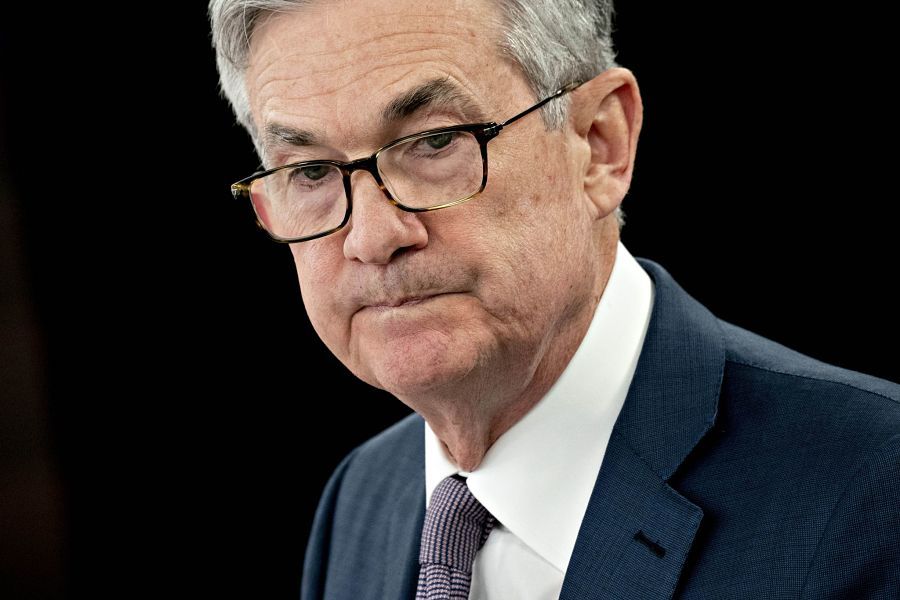Things are looking up: IBDs soared in 2017
With revenue up, interest rates rising and regulation easing, IBDs are soaring.
After a dismal 2016, the independent broker-dealer industry came back to life in 2017, with the top 25 IBDs collectively reporting $23.2 billion in revenue, a 13.1% annual increase, according to InvestmentNews research.
InvestmentNews has been tracking the leading IBDs since 2003 and charting an annual assessment of the industry’s growth since 2004. Over that 14-year period, growth has averaged 10.1%, putting 2017 firmly above average for broker-dealer revenue.
The industry tripled in size during that period — the top 25 firms generated $7.7 billion in revenue back in 2004 — but substantial growth rates will be more difficult to achieve going forward. Last year was the best for the top 25 IBDs since 2013, when independent broker-dealers, still swimming in high commissions from nontraded real estate investment trusts and variable annuity sales, grew at an annual rate of 13.2%.
In 2017, big firms grew from the tailwinds of rising stock prices, the benefits of earlier acquisitions, a robust recruiting market and the transition to the pro-business Republican administration of President Donald J. Trump.
Two years ago, Massachusetts Mutual Life Insurance Co. bought a group of independent reps from MetLife Inc. That helped translate into a 186% increase in revenue in 2017 at MML Investors Services, Mass Mutual’s broker-dealer.
Mass Mutual was not alone.
Small acquisitions
“Obviously, 2017 was helped by the market. But one of the things that played into the results of last year was the success of a small acquisition in 2016, when we bought Foothill Securities and the assets of Wall Street Financial Group,” said Jim Nagengast, CEO of Securities America Inc. “Those acquisitions resulted in three new super [offices of supervisory jurisdiction] and gave us the wind at our backs when we started the year.
“In 2017, we had the best recruiting year in the history of the organization and recruited advisers with a total of $116 million of annual production,” Mr. Nagengast said. “That’s on par with acquiring a midsized firm. With all the change in the industry, it’s a tumultuous time. We think this trend of industry consolidation is going to continue.”
After LPL Financial said in August that it had purchased National Planning Holdings, a four broker-dealer network owned by Jackson National, a frenzy of recruiting erupted as other IBDs tried to pick off some of the 3,200 NPH brokers who were suddenly in play.
Indeed, 2017 was a welcome shot in the arm for an industry that has been beleaguered for years by thinning margins, rising technology and compliance costs, and increased competition from a variety of platforms, including robo-advisers.
Woes of 2017
At the start of 2017, the IBD industry was staggering under the weight of new and costly Department of Labor regulations for clients’ retirement assets. Other problems continued, including the steady decline in commission revenue. Cash deposits, formerly an easy source of profits, generated meager revenue as interest rates still hovered close to record lows.
The industry was coming off a terrible year. According to InvestmentNews data, in 2016, the top 25 firms, or those with roughly $250 million or more in total revenue, collectively reported a year-over-year revenue decline of 1.3%. It was the first time since the dog days of the credit crisis and the stock market crash of 2008 and 2009 that the IBD industry had seen such a revenue drop.
With last year proving to be such a turnaround, one executive said he was looking forward to the rest of 2018.
“Obviously, with the market being up in 2017, it means higher billing for advisory assets,” said Brian Kovack, president of Kovack Securities Inc. “And with the recent volatility comes trades, and trades equal profits, from markups and markdowns.”
Better margins
Also, the Federal Reserve could raise interest rates two or even three more times this year, which means better margins for broker-dealers on money market funds, Mr. Kovack noted.
“That goes right to the bottom line,” he said.
As the stock market hit record highs in January, the number of investor complaints and lawsuits against brokerage firms fell, resulting in firms spending less money on litigation, another boost to broker-dealer finances, Mr. Kovack added.
“Broker-dealers are looking at high levels of assets under management, decent volatility, interest rates going up and litigation going down,” he said. “2018 is looking pretty good, barring something crazy happening in the political world.”
There are also fundamental shifts under way in the industry’s business model.
An examination of InvestmentNews data reveals that fee revenue for the top 25 firms last year surpassed commission revenue for the first time. That signals the further evolution away from charging for transactions in favor of steady fees for assets under management.
More fee revenue
According to InvestmentNews data, the top 25 IBDs last year produced $10.2 billion in revenue from fees, $9.2 billion from commissions and $3.8 billion from other business lines. The previous year, those totals, respectively, were $8.5 billion, $8.9 billion and $3.1 billion. As each quarter passed in 2017, brokerage executives became giddier for two significant reasons.
First, the stock market zoomed in its first year under Mr. Trump’s pro-business administration. The Standard & Poor’s 500 stock index last year posted an increase of 21.8%, good news for broker-dealers that charge clients fees based on assets at the end of each quarter.
Deregulation
Second, the retail brokerage industry widely expected the new Trump administration to push an agenda to deregulate Wall Street and the financial services industry more broadly.
For the broker-dealer industry, the most detested regulation from President Obama’s administration was the DOL’s fiduciary rule, a costly and potentially legal minefield.
In November, those executives and reps got their wish. The DOL released a final rule that would delay implementation of some of the enforcement mechanisms of the fiduciary duty regulation until the middle of 2019, which many at the time perceived as a sign that the rule would be neutered. Last month, a federal appeals court struck down the law, putting its future in even more doubt. And just last week, the Securities and Exchange Commission proposed a long-awaited advice rule that would place tighter restraints on brokers, but may not prove to be as onerous as once feared.
(More: SEC advice rule hearing updates)
Last year’s soaring markets and regulatory rollback are perhaps two unique series of events that are not likely to be repeated in 2018. But consolidation is becoming an even more important factor for growth, particularly at large broker-dealers.
Buy, buy, buy
After LPL’s acquisition last summer of the four NPH broker-dealers, many are wondering when the next large deal will occur. Just last week, Cadaret Grant & Co., an IBD with $23 billion under administration and 925 advisers, announced it was being acquired by Atria Wealth Solutions, a 2-year-old firm backed by private equity.
Cetera Financial Group, a network of six broker-dealers, is exploring a sale that could be worth about $1.5 billion, according to a report in February from Bloomberg News. Cetera would not confirm that report but said it had started a capital structure review and hired Goldman Sachs & Co. as part of the review process.
Donald Marron, a veteran deal maker and head of private equity shop Lightyear Capital, has been mentioned as a possible suitor. Mr. Marron is already a principal of Advisor Group, a network of four broker-dealers, and at one time owned Cetera.
“It could be the era of the megamerger,” said Eric Schwartz, executive chairman of the board at Cambridge Investment Research Inc.
Learn more about reprints and licensing for this article.








